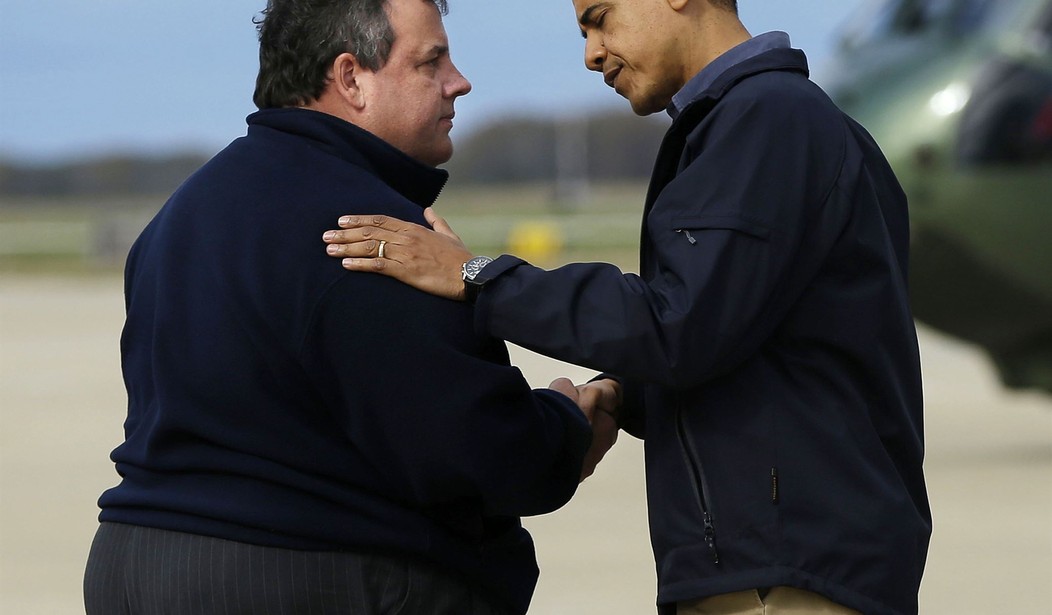Today’s mystery: How did 15% of Connecticut’s lower-income disaster relief funding from Hurricane Sandy end up in the hands of million-dollar home owners? Politico plays the role of Hercule Poirot today, going back nearly a decade to determine why $6.4 million of Housing and Urban Development funds got sent to 62 members of the upper crust.
The culprit turns out to be … the Obama administration and a little-noticed rules change that weakened means testing for HUD funds:
The owners of 62 houses worth more than $1 million along the Connecticut Gold Coast got aid to pay for repairs after Sandy, according to a review of records in dozens of towns. The homeowners received a total of $6.4 million, or 15 percent of the $44 million in HUD aid that went to home repairs in the state.
The median home value in Connecticut is $311,500, according to the U.S. Census Bureau.
The payments, first reported by E&E News, came after a little-noticed change to department regulations in 2013 allowed states to reimburse wealthy homeowners for home repairs. The change marked a significant policy shift in the only disaster program created to help low-income people. Though that change was limited to Sandy aid, HUD has since given other states similar flexibility after major disasters.
The owner of one $5.5 million waterfront home on Nearwater Lane in Darien, Conn., with five bedrooms and a swimming pool, received $150,000.
Another owner sold their home for $2.6 million after taking a $150,000 grant.
Twelve of the 62 homes are worth more than $2 million, according to E&E News’ analysis of local assessors’ records.
Don’t blame us, Connecticut officials told Politico. The change in the federal rules allowed for wide-open disbursements, they claim, and they’re right — to a point. The HUD rules change let the states determine their own formula for means testing, apparently including no means testing at all. New Jersey kept their previous HUD means testing in place, restricting that tranche of funding to households with under $250,000 in annual income — which may not limit the funding to the poor, but at least limits it in some sense.
That matters, because the HUD money is supposed to be specifically targeted at low-income families. (There were other relief funds available in the Hurricane Sandy package.) Connecticut tried to spin this by claiming 67% of their HUD grants from the Hurricane Sandy relief package did go to low- and moderate-income housing and neighborhoods and that those grant applicants had priority over the wealthier households. However, Politico dug up failures to fund housing damage in Bridgeport from the hurricane as well as expansion of low-income housing that fell far short of plans due to lack of funding. Perhaps most poignantly, a “historic Black church” has remained closed in the poor area of Bridgeport a decade later, never having gotten the relief funds it requested.
But at least that family in the $5.5 million home can use its swimming pool!
Why highlight this rather grubby state-level story about misdirected aid? Perhaps people forget this, but the $60 billion aid package passed by Congress after Hurricane Sandy was one of the largest of its kind — and a number of people questioned the rush in which it was passed. For one thing, about a quarter of it was unrelated pork-barrel spending that had nothing to do with the hurricane or the damage it did. Relatedly, the bill got jammed through Congress rather than go through regular order, which might have allowed for enough scrutiny to catch the fact that the spending didn’t have enough oversight to ensure against waste.
Nearly a decade later, Congress would repeat this on a much more vast scale with its three COVID-pandemic relief bills, any of which dwarfed the $60 billion spent on Hurricane Sandy and pork. Just as with the Sandy bill, Republicans who stood up to demand greater accountability got castigated as heartless fiends — even by other Republicans like Chris Christie, who’s now clearing his throat about another presidential run. In all of these cases, Congress used emergencies to spend wildly without any discipline or transparency. And in all of these cases, we find out years after the fact that much of the money didn’t go to its ostensible targets, but instead benefited the people who needed it the least at the expense of American taxpayers.
There’s a lesson in this. And you can bet that Congress won’t learn it. Will the rest of us?








Join the conversation as a VIP Member